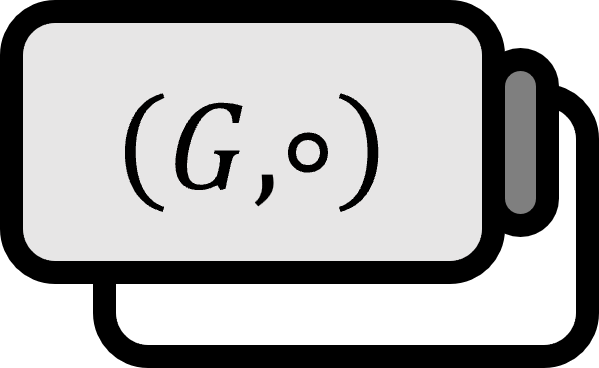The Fundamental Theorem of Algebra Expressed in Terms of Abstract Algebra
Definition 1
Let $E$ be an extension field of field $F$.
- If all polynomials have zeros in $F$, then $F$ is said to be Algebraically Closed.
- $\overline{ F_{E}} : = \left\{ \alpha \in E \mid \alpha \text{ is algebraic over } F \right\}$ is called the Algebraic Closure of $F$ in $E$.
Theorem
- [1]: If $F$ is algebraically closed, $\iff$ then every $f(x) \in F [ x ]$ is factored into terms of degree $1$ in $F [ x ]$.
- [2]: There does not exist an algebraic extension field $E$ satisfying $F \lneq E$ over the algebraically closed field $F$.
- [3]: The set of algebraic numbers forms a field.
- [4]: $\overline{ F_{E}}$ is a subfield of $E$.
- [5]: Every field has an algebraic closure.
- Naturally, by polynomial here, we refer to polynomials other than the constant function.
Explanation
$\overline{F}$ is the set of elements we can algebraically obtain by expanding to $E$ while covering $F$ and taking up all the sets that we can get, up to the elements that are attainable algebraically. If you’re somewhat familiar with topology, you can think of it as analogous to obtaining a closed set $\overline{F} = F \cup f '$ by combining $F$ with a target set $f '$.
Through these expressions and theorems, the Fundamental Theorem of Algebra can be described as follows.
The field of complex numbers $\mathbb{C}$ is algebraically closed.
To unpack this, theorem [1] implies that polynomials with complex coefficients are factored into terms of degree $1$ in $\mathbb{C} [ x ]$, thus having exactly as many zeros as the degree of the highest term, including multiplicity. This is equivalent to the Fundamental Theorem of Algebra as we originally knew it.
Moreover, theorem [2] guarantees that there is no algebraic extension field which has $\mathbb{C}$ as a proper subset. This means there is no need to consider any field larger than $\mathbb{C}$, effectively making $\mathbb{C}$ the largest field we deal with, a notion that is perfectly acceptable. This fact justifies studying the scalar field as the field of complex numbers in functional analysis and vector spaces, among others.
Proof
■
Fraleigh. (2003). A first course in abstract algebra(7th Edition): p286~287. ↩︎
